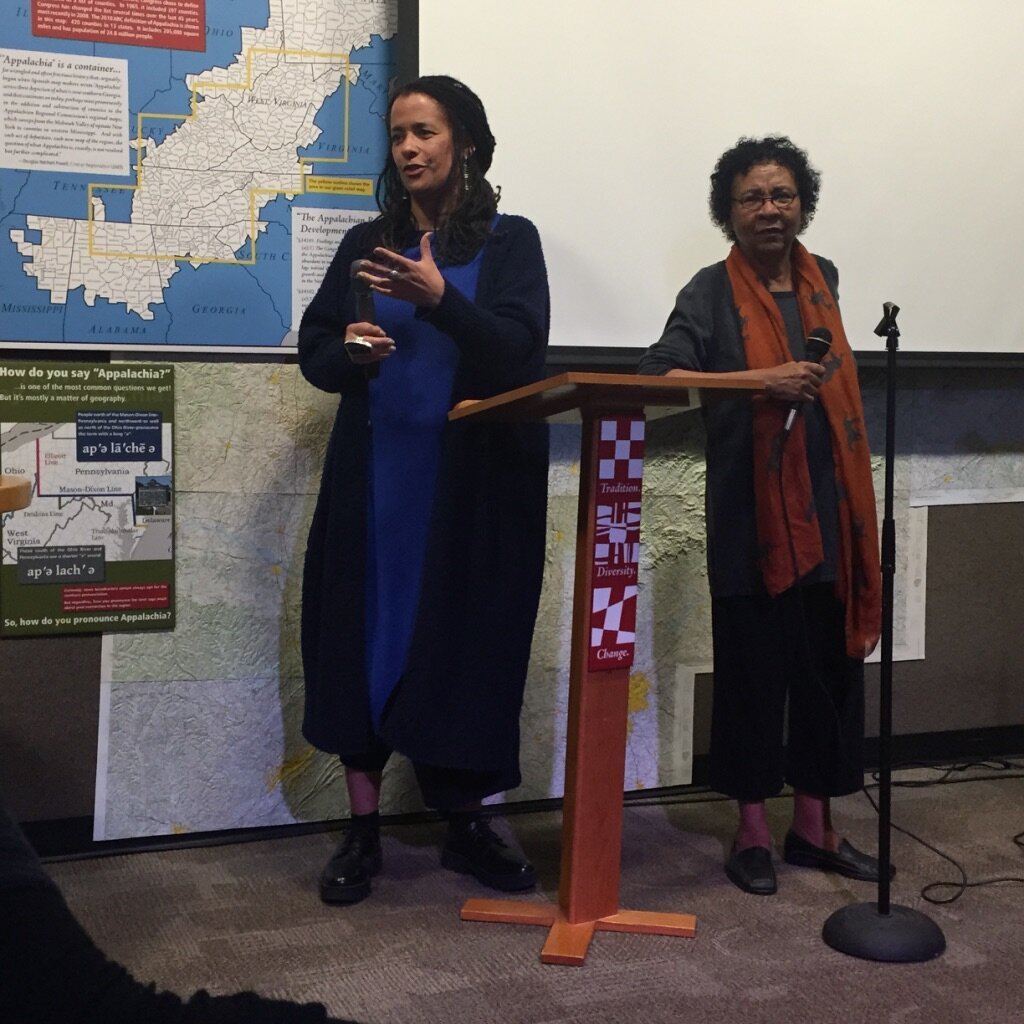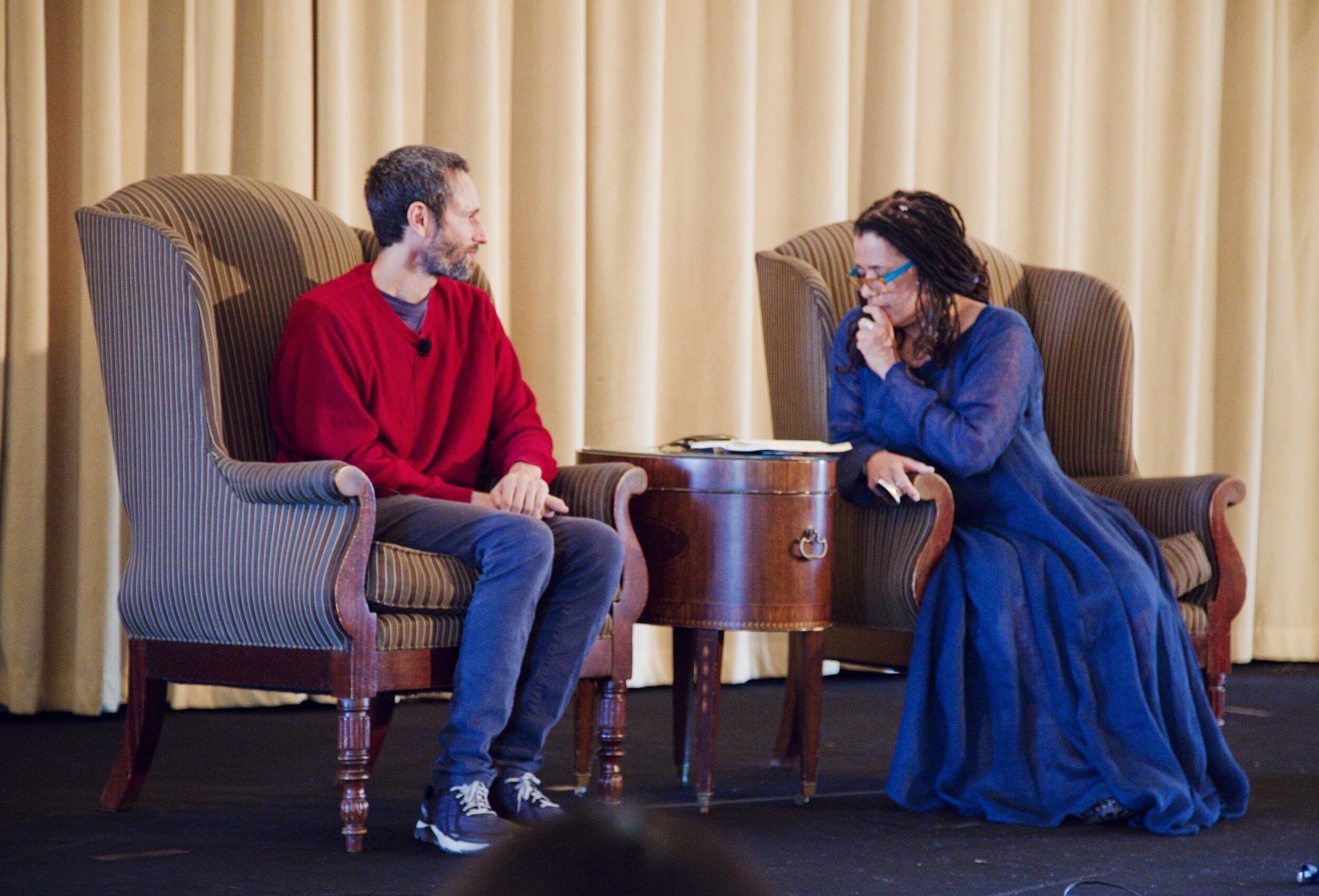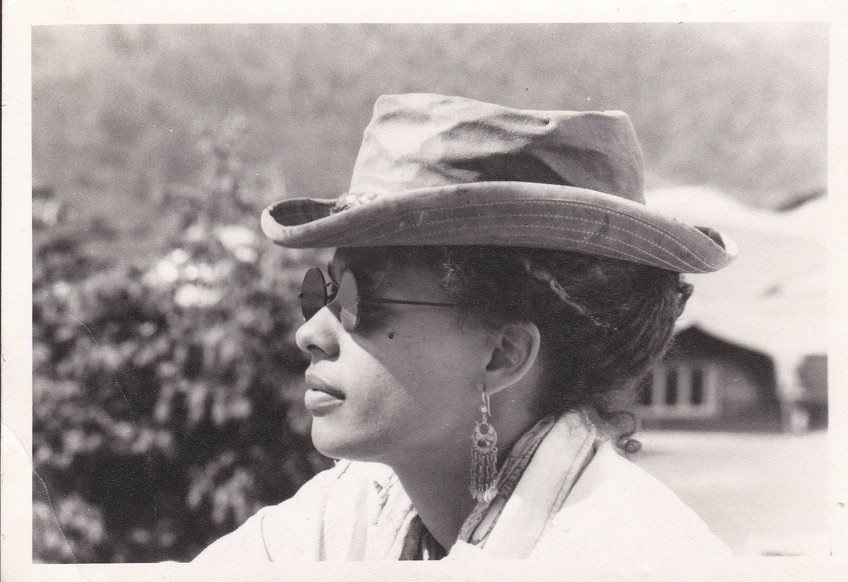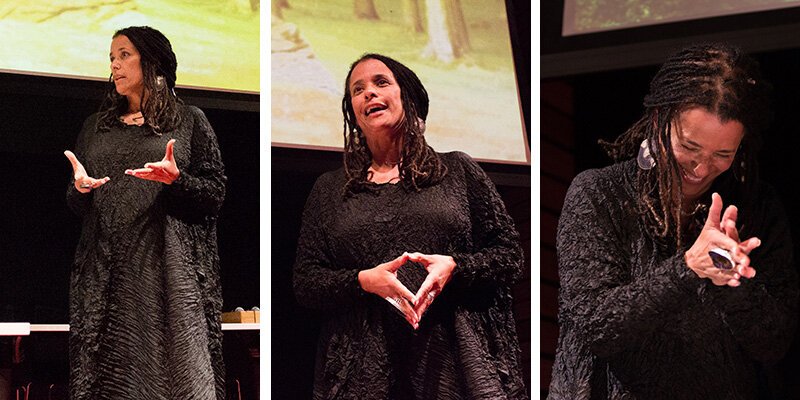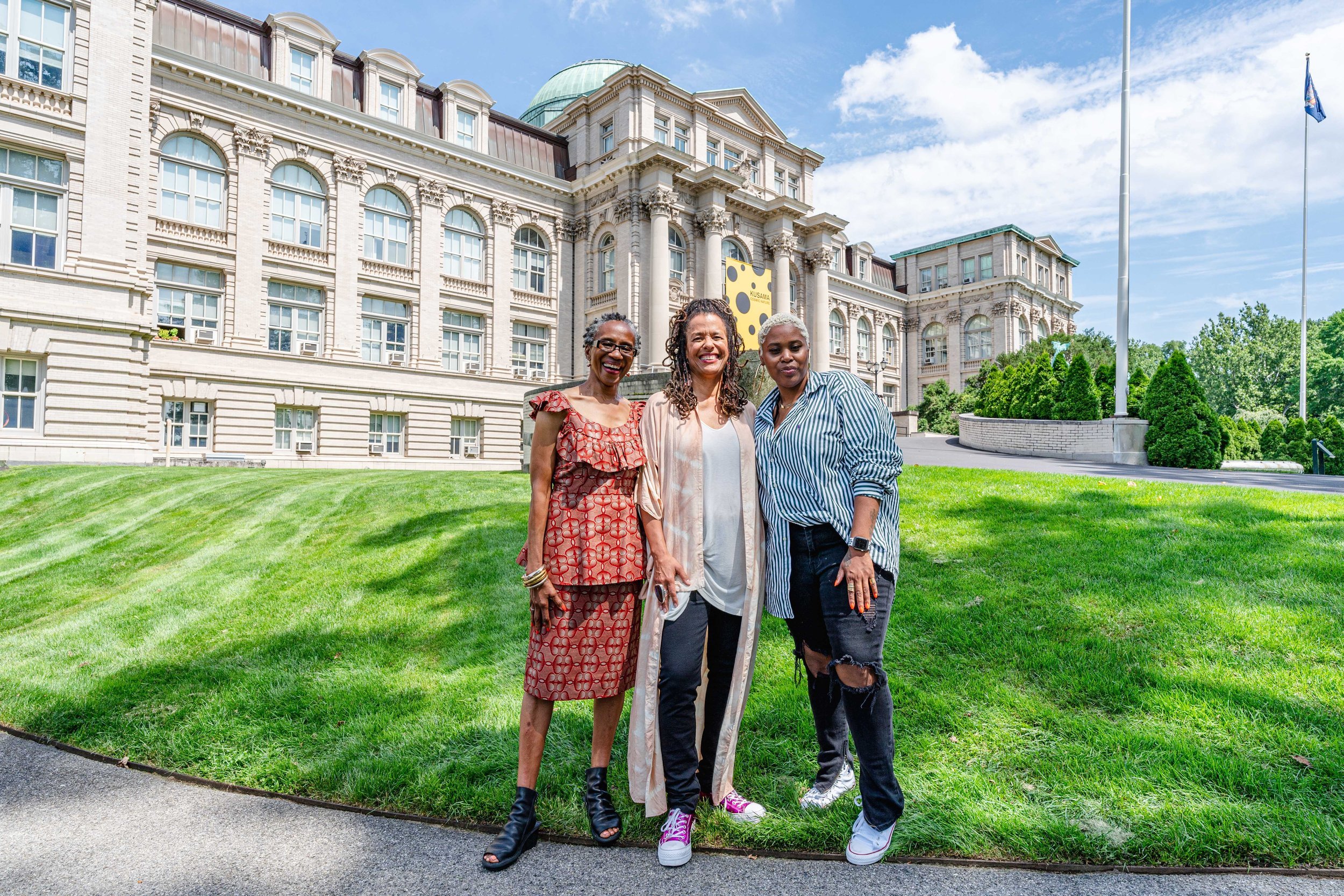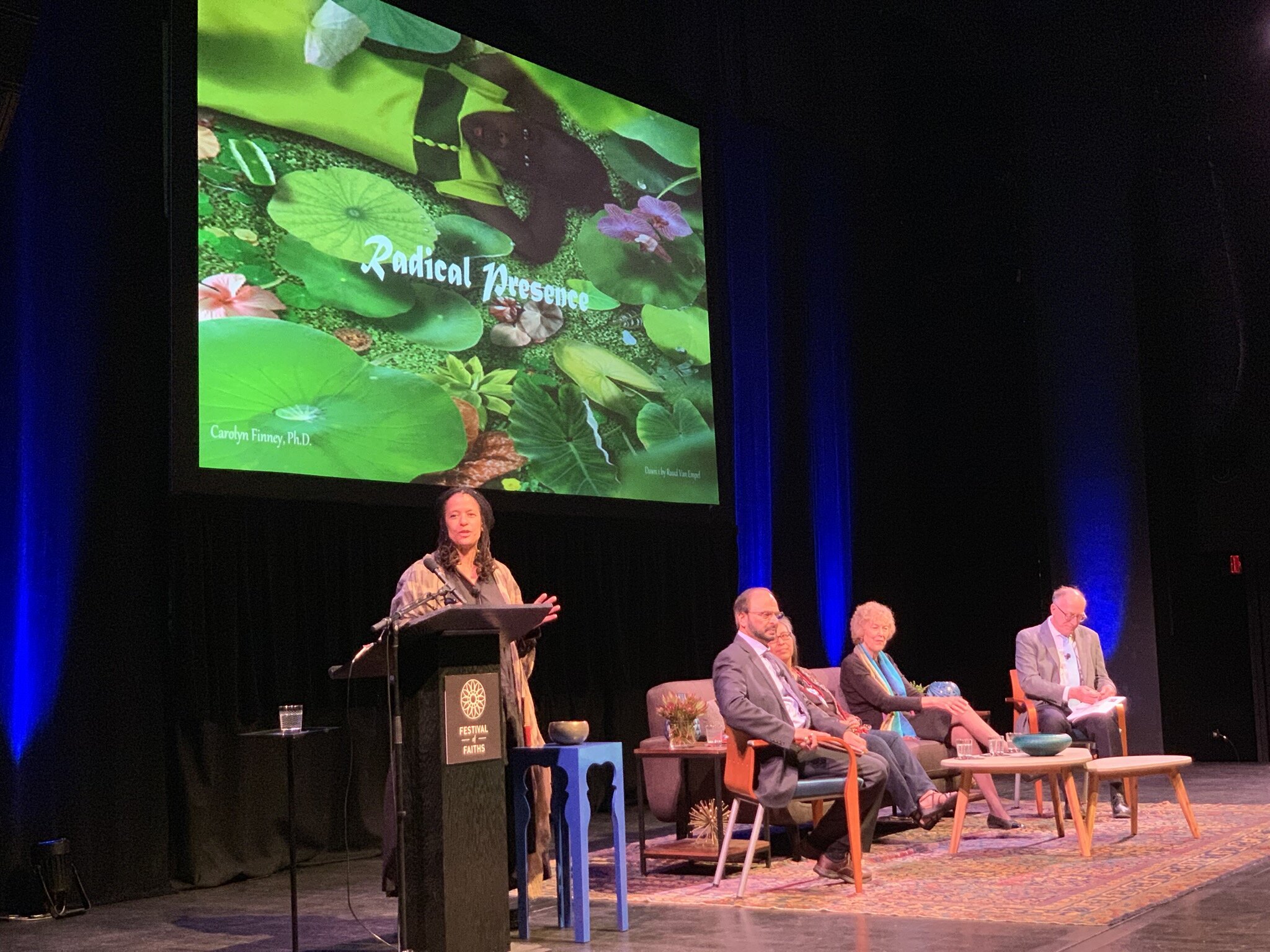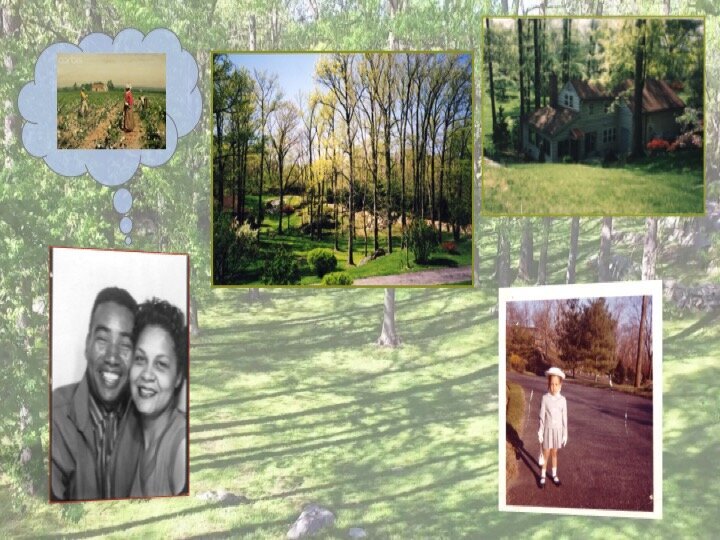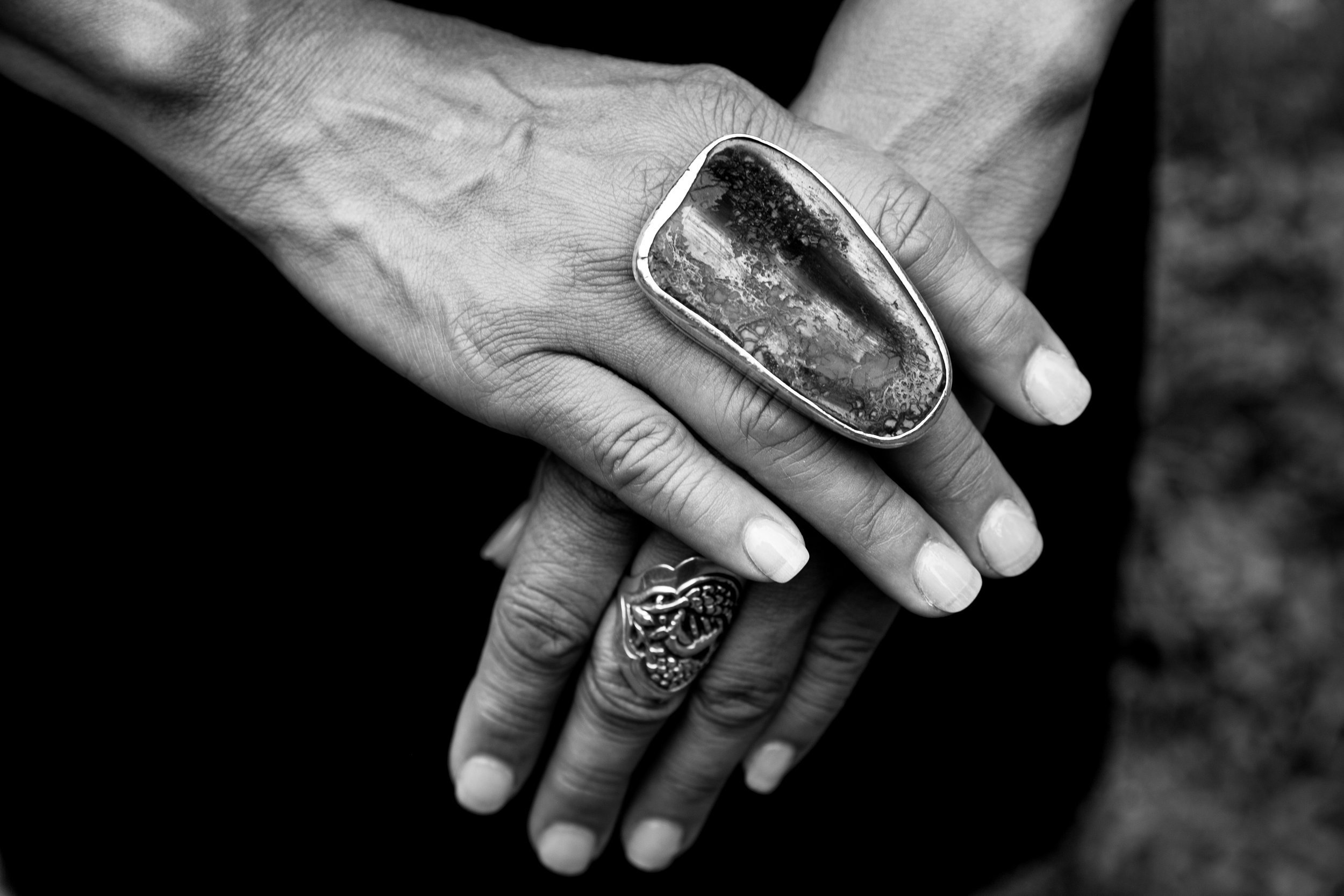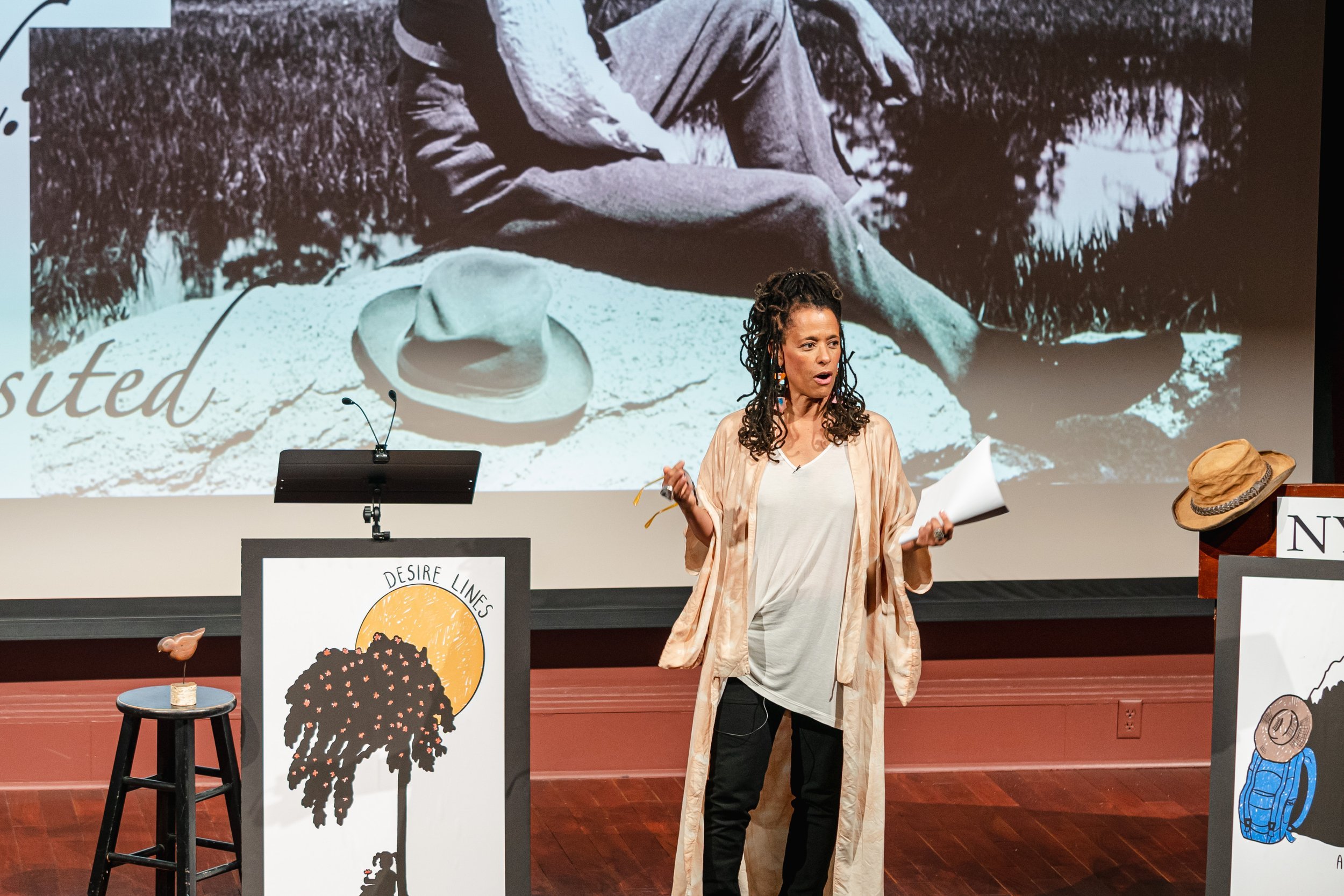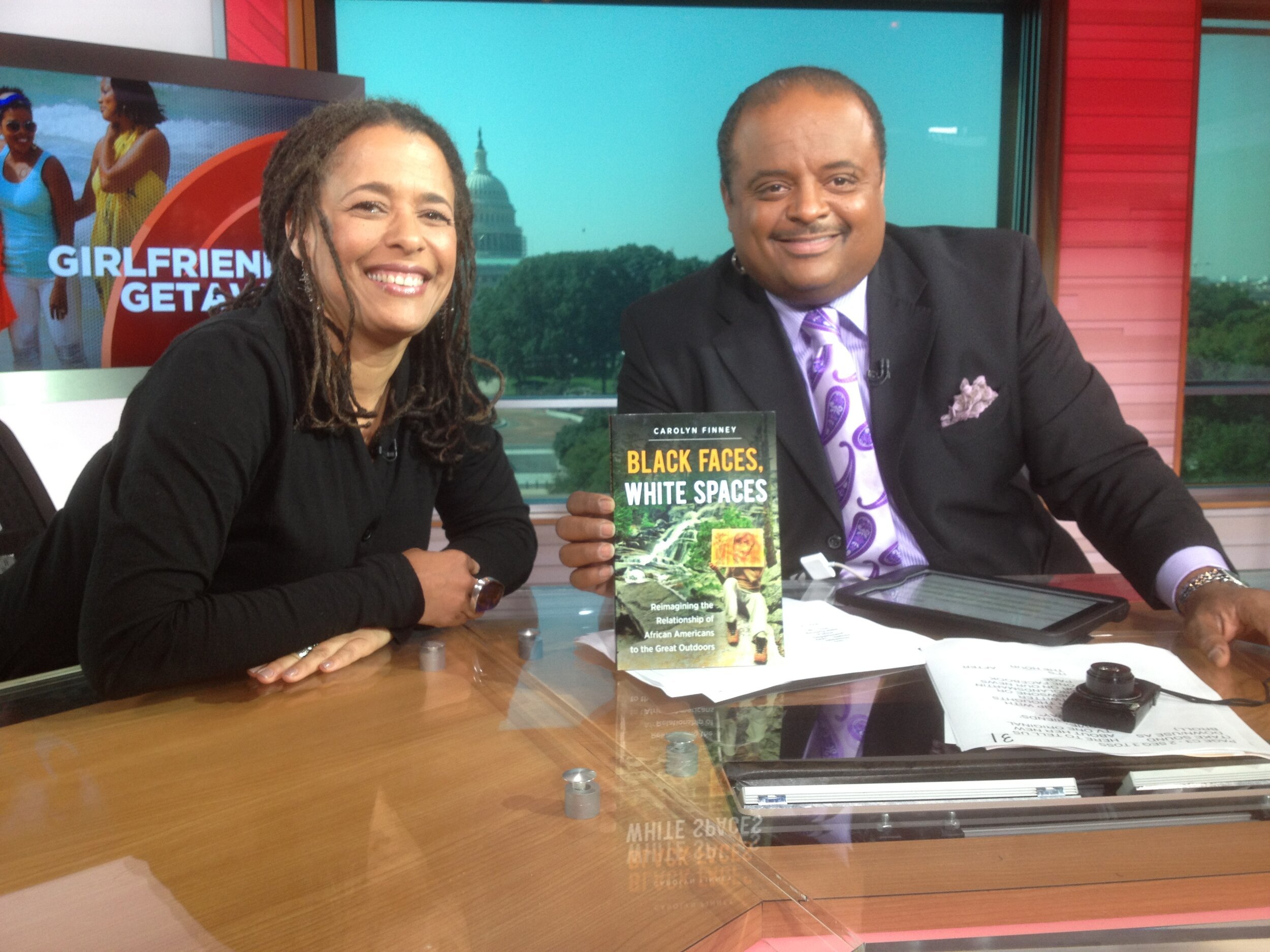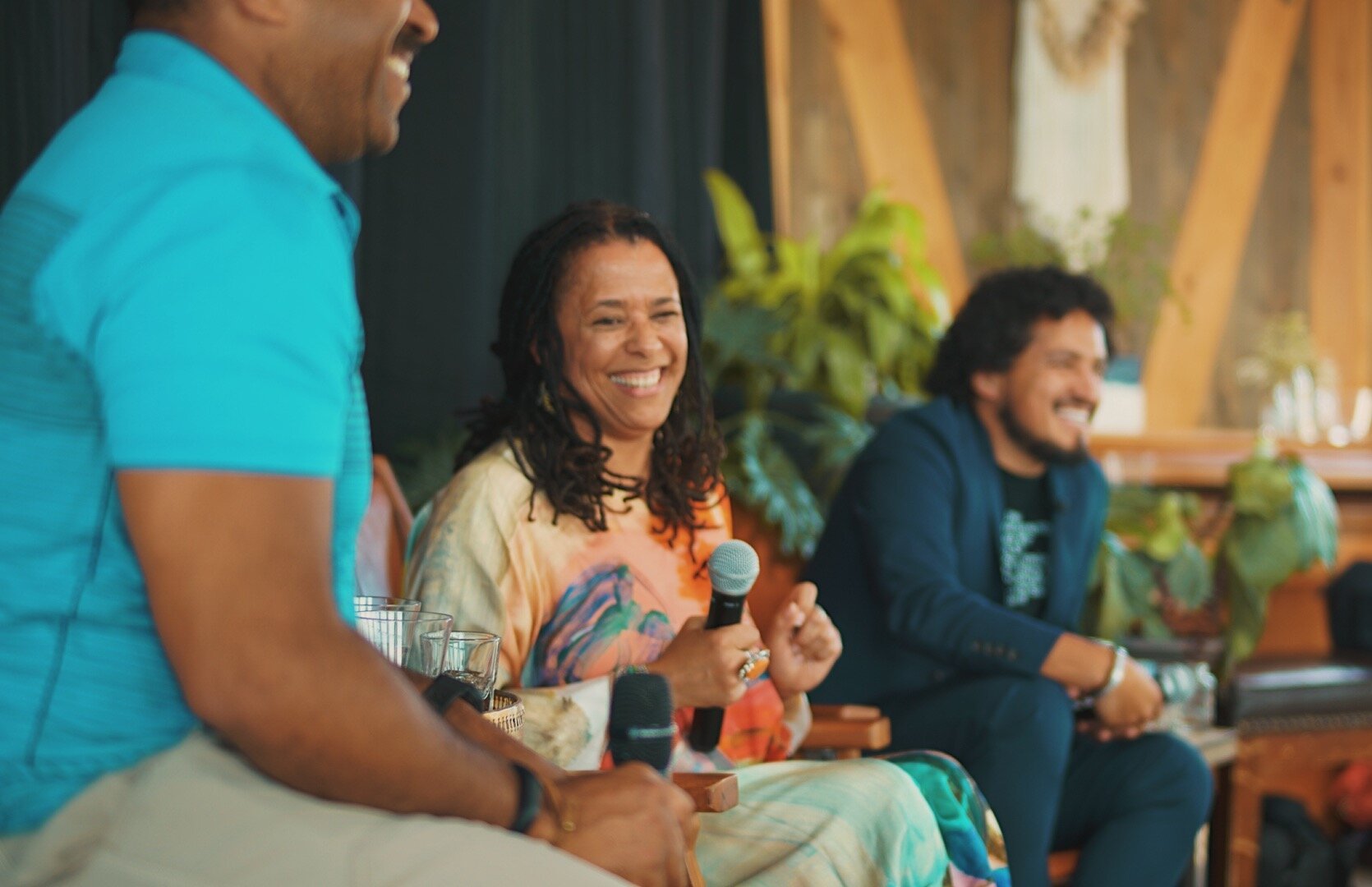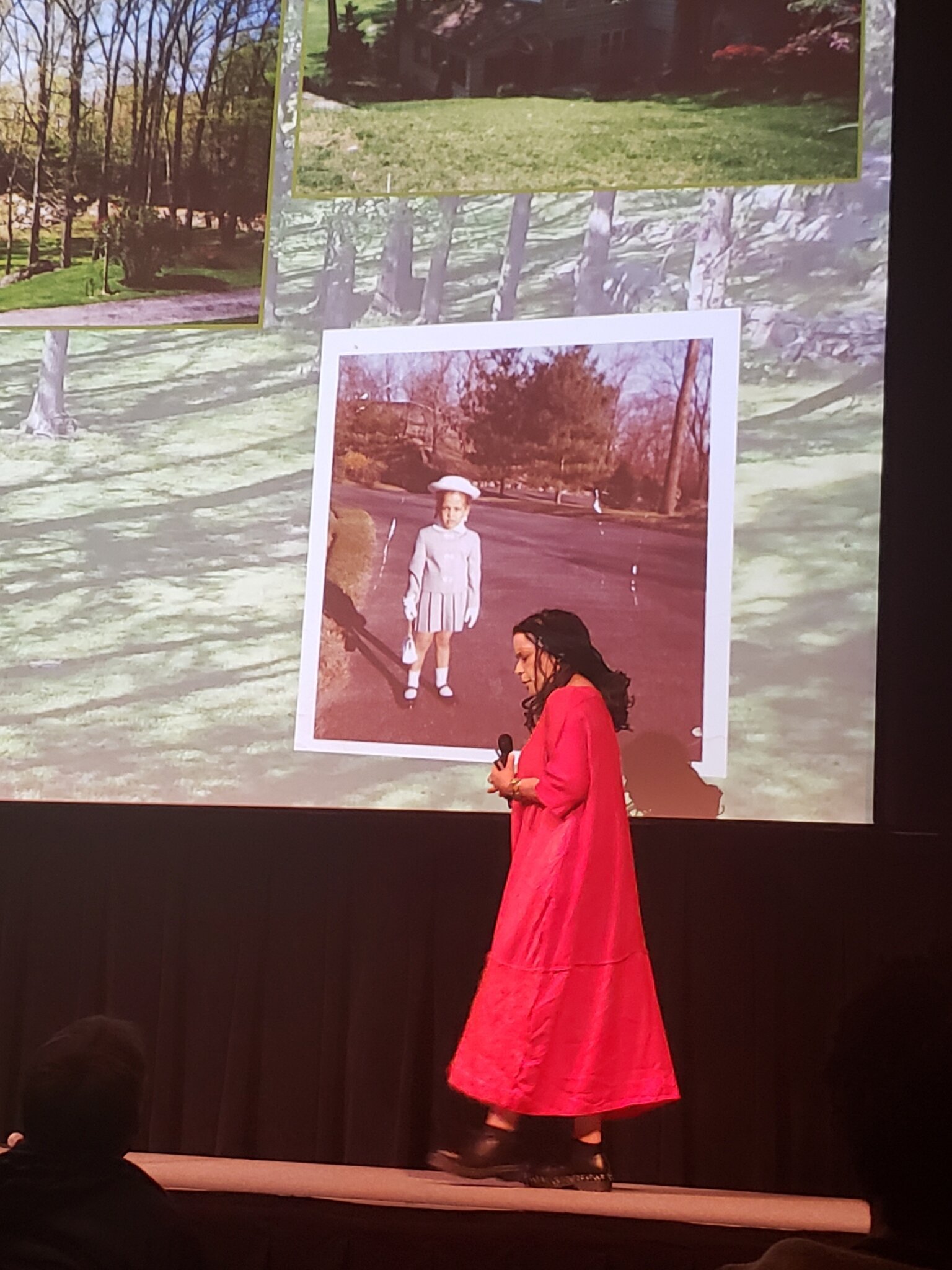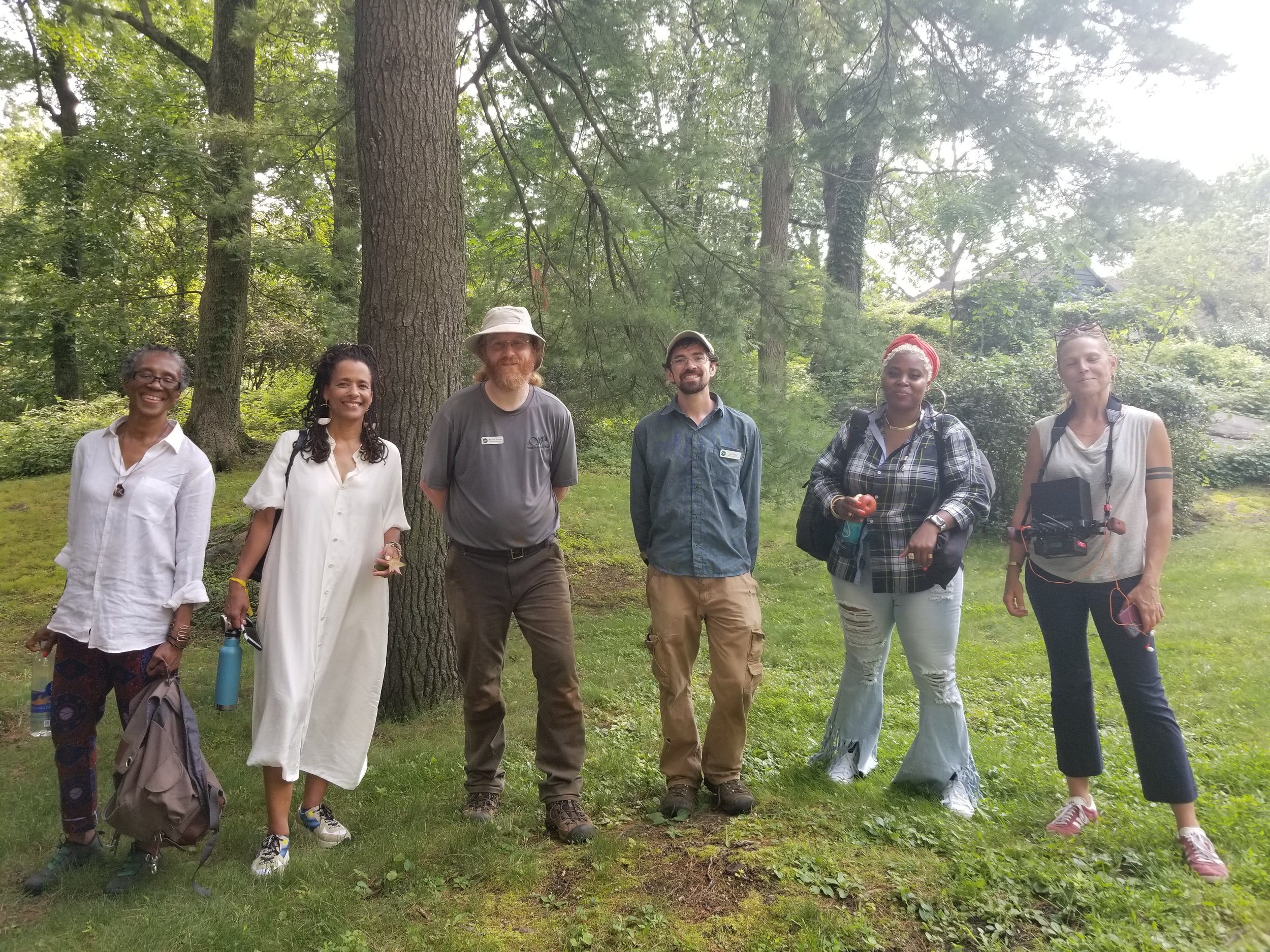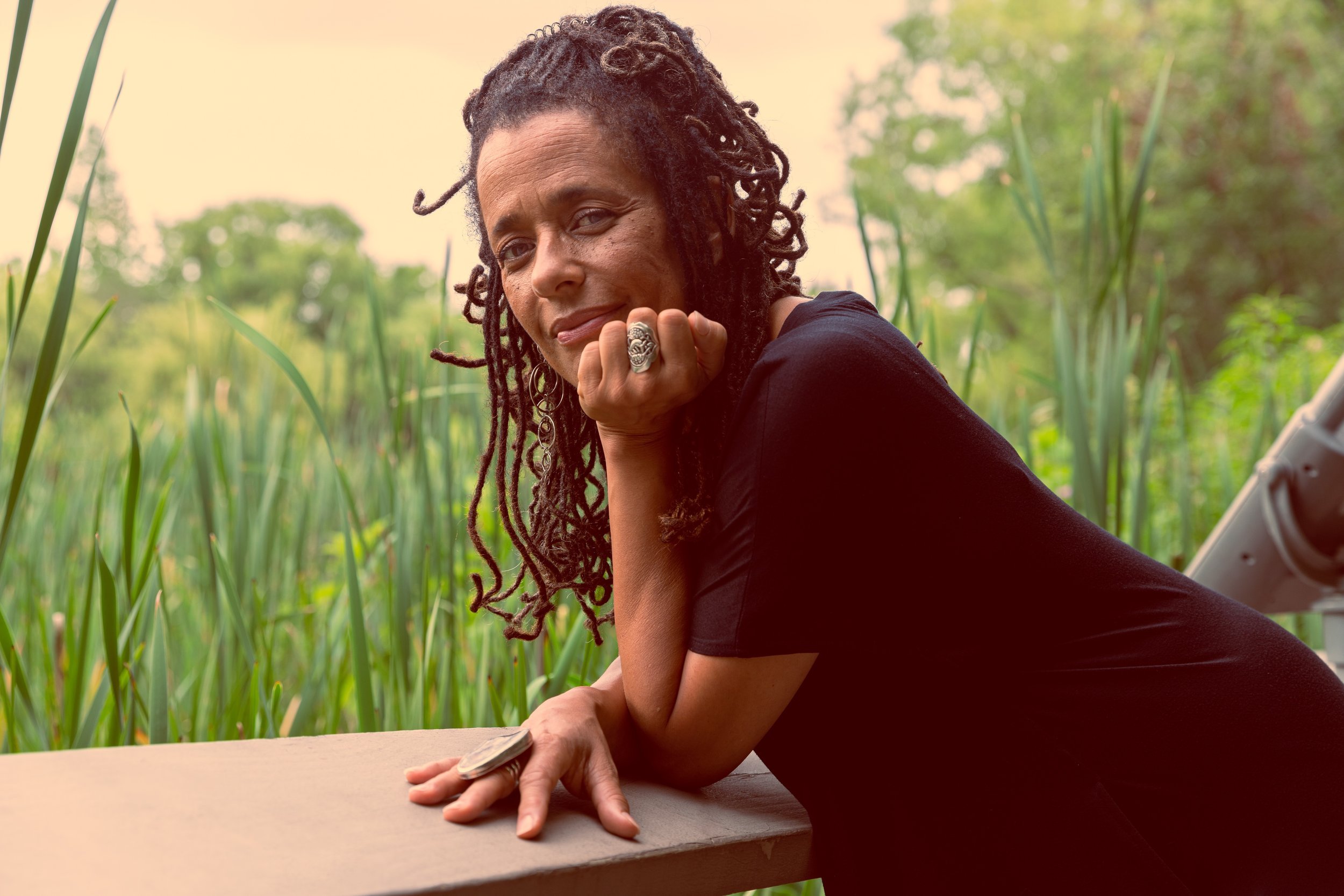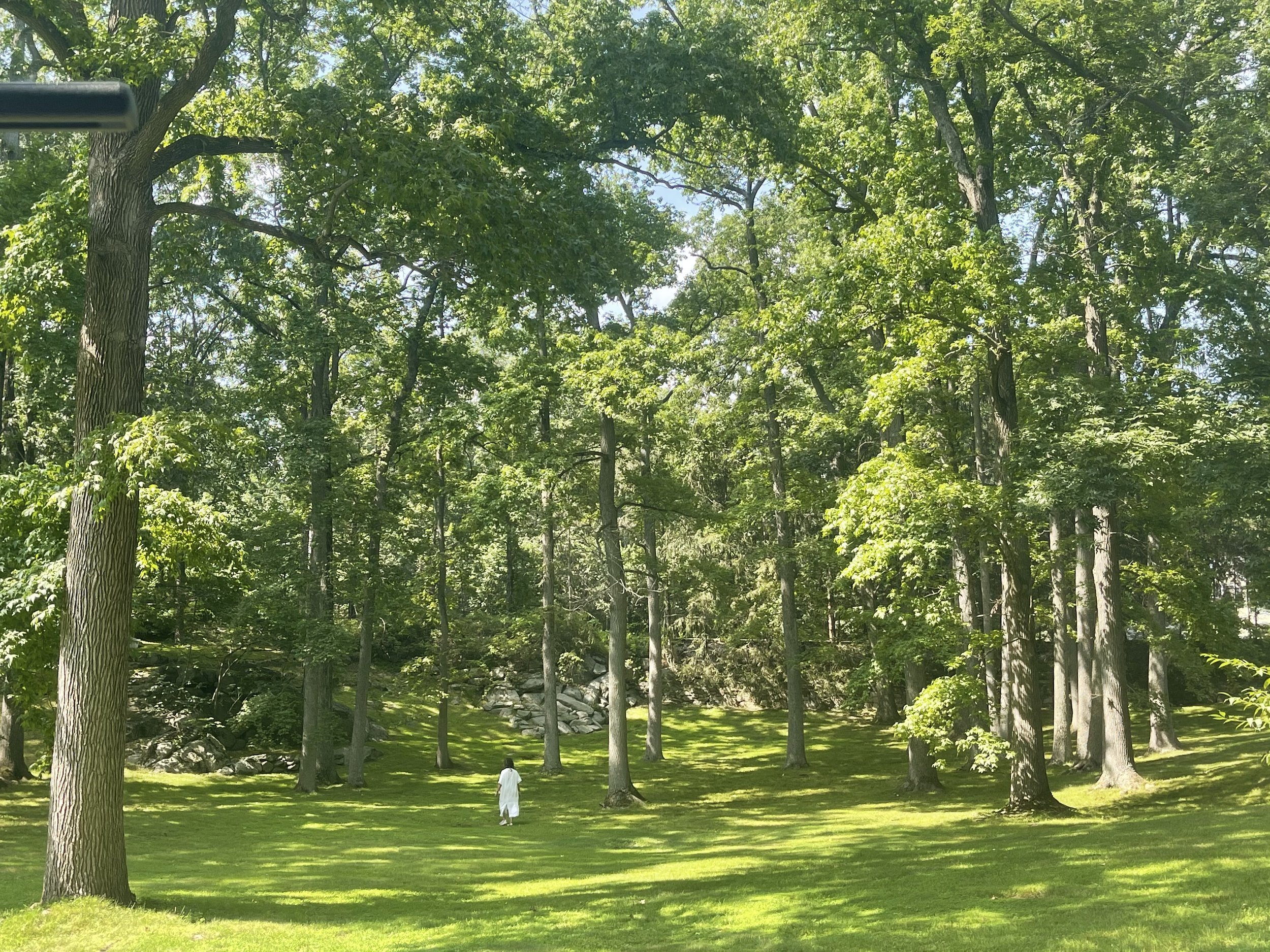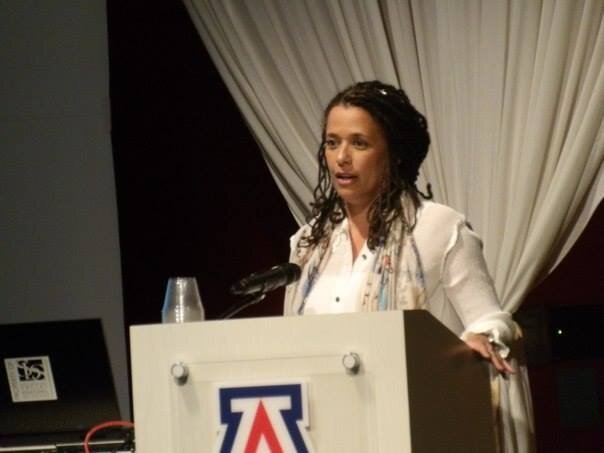Get to know me!
Carolyn Finney, PhD is a storyteller, author and a cultural geographer who is deeply interested in issues related to identity, difference, creativity, and resilience. The aim of her work is to develop greater cultural competency within environmental organizations and institutions, challenge media outlets on their representation of difference, and increase awareness of how privilege shapes who gets to speak to environmental issues and determine policy and action. Carolyn is grounded in both artistic and intellectual ways of knowing - she pursed an acting career for eleven years, but five years of backpacking trips through Africa and Asia, and living in Nepal changed the course of her life. Motivated by these experiences, Carolyn returned to school after a 15-year absence to complete a B.A., M.A. (both of these degrees focused on gender and environmental issues in Kenya and Nepal, respectively) and Ph.D. (which focused on African Americans and environmental issues in the U.S.) She has been a Fulbright Scholar, a Canon National Parks Science Scholar and received a Mellon Postdoctoral Fellowship in Environmental Studies.
Carolyn has worked with the media in various capacities including the Tavis Smiley Show, MSNBC, & Vice News Tonight; wrote Op-Eds for Outside Magazine & Newsweek; was a guest editor & contributor for a special section on Race & the National Parks in Orion Magazine; participated in a roundtable conversation with REI and The Atlantic; interviewed with various media outlets including NPR, Sierra Club, Boston Globe & National Geographic; and even filmed a commercial for Toyota that highlighted the importance of African Americans getting out into Nature. Along with public speaking, writing, consulting and teaching (she has held positions at Wellesley College, the University of California, Berkeley & the University of Kentucky), she served on the U.S. National Parks Advisory Board for eight years which assists the National Park Service in engaging in relations of reciprocity with diverse communities. Her first book, Black Faces, White Spaces: Reimagining the Relationship of African Americans to the Great Outdoors was released in 2014 (UNC Press).
Recent publications include “Memory Divine” in A Darker Wilderness: Black Nature Writing from Soil to Stars (edited by Erin Sharkey, Milkweed Press, Feb. 2023); “Joy is a Revelation” in Nature Swagger: Stories and Visions of Black Joy in the Outdoors (edited by Rue Mapp, Chronicle Books, Oct. 2022); Self-Evident: Reflections on the Invisibility of Black Bodies in Environmental Histories (BESIDE Magazine; Montreal Spring 2020);”The Perils of Being Black in Public: We are all Christian Cooper and George Floyd (The Guardian, June 3rd 2020) and “Who Gets Left Out of the Great Outdoors Story?” (The NY Times November 4 2021). She is currently working on her new book (creative non-fiction) that takes a more personal journey into the very complicated relationship between race, land & belonging in the United States, and a performance piece entitled The N Word: Nature Revisited as part of an Andrew W. Mellon residency at the New York Botanical Gardens Humanities Institute. She is involved with a number of documentary film projects; her family’s story appears in the HBO documentary, Trees and Other Entanglements (Vermilion Films). Along with being a columnist at the Earth Island Journal for three years, she was awarded the Alexander and Ilse Melamid Medal from the American Geographical Society and is a scholar/artist-in-residence in the Franklin Environmental Center at Middlebury College.
